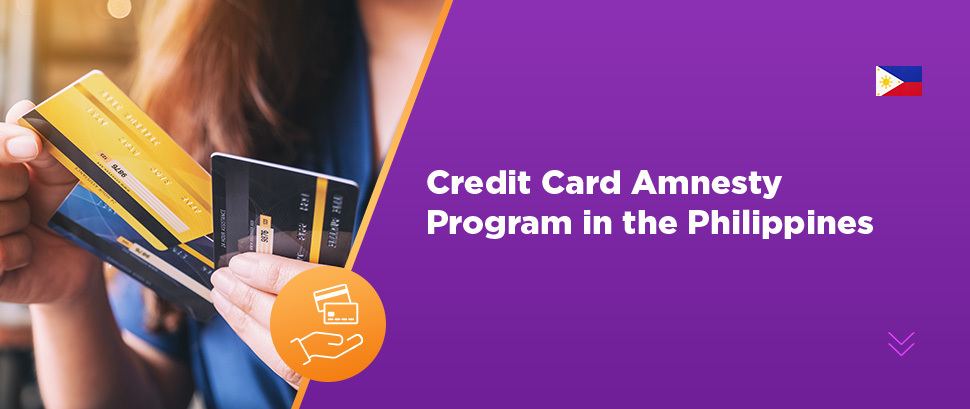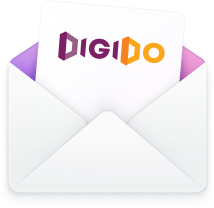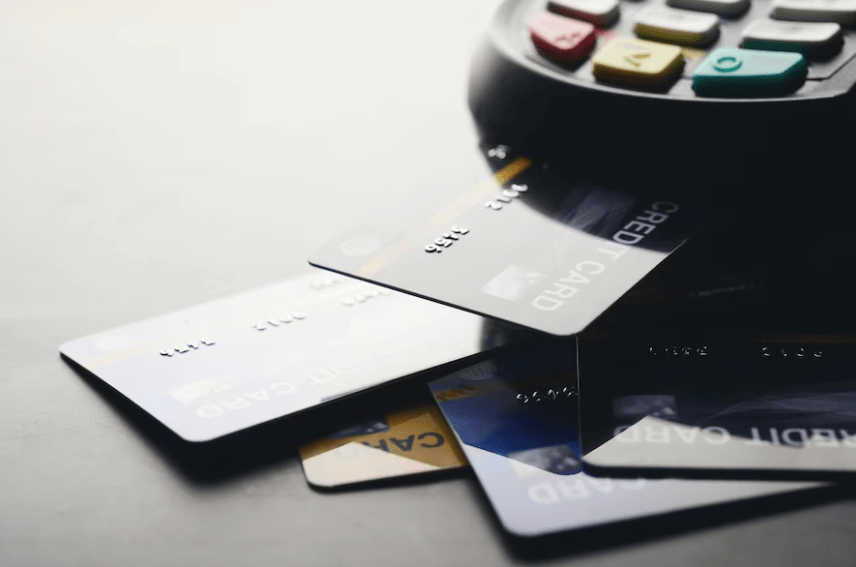How to Apply for Credit Card Amnesty Program in the Philippines
Key takeaways:
- If you have high credit card debts, you may benefit from the credit card amnesty program in the Philippines, which offers more affordable terms and longer payment periods.
- Credit card debt is not a criminal offense in Philippines, so you will not face jail time for it.
- Unpaid credit card debts do not disappear or get written off after seven years, contrary to common misconceptions
- After obtaining credit card amnesty, your ability to apply for new credit cards or loans is suspended until the debt is fully repaid
Table of Contents

If you have unpaid credit card debts in the Philippines, you might be wondering how to deal with them without getting into more trouble.
In this article, you will learn about the Interbank Debt Relief Program (IDRP), or the credit card amnesty program, which can assist you in paying off your debts with more favorable terms and extended payment periods.
- Loans even without bank Accounts
- Fast and high approval in 5 minutes
- Apply with only 1 Valid ID

The Consequences of Not Paying Your Credit Card Debt in the Philippines
Credit card debt is a serious matter that can negatively affect your financial health and well-being. If you don’t pay your credit card debt in the Philippines, here are some of the possible outcomes:
- Your credit score will drop, making it harder for you to get approved for loans, mortgages, or other credit products in the future.
- Your credit card issuer will charge you late fees, penalties, and higher interest rates, increasing your debt burden.

Learn How to Take
Personal Loans With Bad Credit Score
Is Credit Card Debt a Criminal Offense in the Philippines
The good news is that you cannot be jailed for credit card debt in the Philippines, as it is considered a civil liability and not a criminal offense.
However, banks can file a civil case for collection of sum of money if you fail to fulfill your obligation to pay your credit card debts.
Note that, fraudulent activities related to credit card use, such as using a credit card with the knowledge that it is forged, stolen, or expired, or that the customer does not have sufficient funds to pay the charges, can be considered a criminal offense under the Access Devices Regulation Act of the Philippines.

How to Handle Credit Card Debt Collectors in the Philippines
If your credit card debt has been assigned to a collection agency, you may feel harassed or intimidated by their calls or visits. However, you have rights as a debtor that protect you from abusive or unfair collection practices.
Here are some tips on how to deal with credit card debt collectors in the Philippines:
👉 Learn your rights: Under the Republic Act No. 10870 (1) or the Philippine Credit Card Industry Regulation Law, collection agencies are prohibited from engaging in any of the following acts:
- Threatening or harassing the debtor or any third party with violence, injury, false arrest, or criminal prosecution
- Making false or misleading representations about the debt, the creditor, or the collector
- Disclosing or threatening to disclose any personal or confidential information about the debtor or any third party without their consent
- Contacting the debtor at unreasonable hours (before 6:00 AM or after 10:00 PM), except with prior consent
- Contacting the debtor at their workplace if they have informed the collector that their employer prohibits it
- Contacting any third party other than the debtor’s spouse, parent (if minor), guardian, executor, or administrator without prior consent
👉 Record Conversations: If a debt collector is contacting you, it’s essential to document everything. This includes keeping a record of phone calls, emails, and text exchanges. Be sure to obtain their consent to record the conversation.
👉 Report Unfair Practices: If you believe a debt collector is violating these rules, report them to your bank. This can help address unethical practices and adjust the collector agencies’ interaction guidelines.
👉 Verify the Collector’s Agency: Be cautious and ensure the collector represents an authorized agency. Visit the CCAP website to verify the agency from a list of accredited debt recovery agencies in the Philippines.
Learn about
Getting a loan without a bank account in the Philippines
Credit Card Amnesty Program in Philippines
The Interbank Debt Relief Program (IDRP) is a voluntary initiative of the Credit Card Association of the Philippines (CCAP) (2) to help distressed credit cardholders settle their debts with more affordable terms.


Benefits of Restructured Credit Card Debt
Under the IDRP, your credit card debts will be consolidated and restructured into a single loan with a lower interest rate and a longer repayment period. The features of the restructured credit card debt are as follows:
- Interest rate: The interest rate will be reduced to 0-2.5% per month, depending on the loan.
- Repayment period: The repayment period will range between one to ten years, depending on each case.
- Monthly amortization: The monthly amortization will be computed based on your income and expenses, ensuring that it is within your capacity to pay.
- Credit limit: Your credit limit will be reduced to zero, and your credit cards will be blocked or canceled upon approval of the IDRP.
| Loan Type | Interest Rate | Repayment Period |
|---|---|---|
| Secured | 1.5% per month or 0% to 1.5%, depending on the bank’s discretion | 10 years or 12 to 16 months, or up to 10 years for extreme cases of credit card debt |
| Unsecured | 2.5% per month or 0% to 1.5%, depending on the bank’s discretion | 5 years or 12 to 16 months, or up to 10 years for extreme cases of credit card debt |
Banks providing credit card amnesty program in the Philippines
The IDRP is available to credit cardholders of CCAP member banks, which include the following:
- Bank of Commerce
- Bank of the Philippine Islands
- BDO Unibank
- China Banking Corporation
- Citibank
- EastWest Bank
- Equicom Savings Bank
- HSBC
- Maybank
If you have credit card debts from non-CCAP member banks, you may still avail of the IDRP if they agree to participate in the program.

No Bank Account? No Problem! Digido offers loans without the need for a bank account. Apply today and get the funds you need via E-wallet. Calculate your pre-approved loan amount:
* Interest payments are approximate. The final loan amount and interest rate must be confirmed in your loan agreement after loan approval.
Learn about
Debt Consolidation Loan Philippines: Managing Debt with a Single Loan
How to Pay Off Your Debt Through Credit Card Amnesty in the Philippines
If you are interested in availing of the credit card amnesty program in the Philippines, you need to meet certain eligibility criteria and follow a specific application process.
Who Can Apply: IDRP Eligibility Requirements
To qualify for the IDRP, you must meet the following requirements:
- You must be a Filipino credit cardholder
- You must have at least one credit card from different two participating banks.
- You must have an outstanding balance of at least PHP 10,000 per credit card and a total overdue balance of PHP 100,000.
- You must have a delinquency status of at least 6 months or 180 days past due on all your credit cards.
- You must not have availed of the IDRP or any similar debt relief program in the past six months.

To apply for a credit card debt restructuring under the IDRP or a credit card amnesty program, you should gather the following required documents:
- Completed application form
- Valid identification issued by the government for both the applicant and co-maker (if one is needed)
- Statement showing your income and expenses
- Verification of your income
- If you’re an employee, provide payslips from the past three months or your income tax return (ITR)
- If you’re self-employed, provide your most recent ITR or audited financial statement
- Proof of any additional income
- IDRP Payment Agreement Contract, signed by you and the co-maker (if applicable)
- Consent form from the debtor, promissory note, or post-dated checks
How to avail of Interbank Debt Pelief Program
To apply for the IDRP, you need to follow these steps:
- Contact any of your CCAP member banks and express your intention to avail of the IDRP. If you hold multiple credit cards from different banks, the bank with the largest combined outstanding balance will initiate your application process. You can do this by calling their customer service hotline, visiting their branch, or sending them an email or letter.
- Representative from the lead bank will communicate with you about the arrangements and the application process. This includes discussing a suitable repayment plan that typically extends from 12 to 60 months.
- Submit the required documents to support your application.
- Declare all your outstanding credit card balances in the application. Note that you cannot apply for a specific credit card account only.
- Wait for the evaluation and approval of your application.
- Sign the IDRP agreement and start paying your restructured debt.
- If your application is denied, you can reapply after a six-month waiting period.
Alternatively, you may also reach out directly to your credit card issuer to inquire about their specific credit card amnesty program for delinquent accounts.
In the IDRP process, if you have debts across multiple banks, the bank with your highest total outstanding balance assumes the lead role. This is done to simplify the debt restructuring process by having a single point of contact.
How to Apply for the HSBC Philippines Credit Card Amnesty Program
If you have an HSBC credit card debt, you may be eligible for the HSBC Philippines Credit Card Amnesty Program, which is a separate program from the IDRP. This program offers a one-time settlement offer for qualified HSBC credit cardholders who have been delinquent for at least 12 months or 360 days.
To apply for this program, you need to follow these steps:
- Download the payment plan application form (3) and fill it out correctly and send it to collections@hsbc.com.ph.
- Contact HSBC Philippines and express your intention to avail of the credit card amnesty program. You can do this by calling their customer service hotline at +632 8858 5000 from 8:30 a.m. to 5:30 p.m. (Monday to Friday).
- Gather all the necessary documentation to support your application.
- Wait for the evaluation and approval of your application.
How to Apply for the Credit Card Amnesty Program from a non-CCAP member Bank?
If you have a credit card debt from a non-CCAP member bank, see list here (4), you may still avail of the credit card amnesty program if they agree to participate in the program. However, the terms and conditions of the program may vary depending on the bank’s policies and discretion.
Learn How to Take
Online Loans for Bad Credit

What Happens After Getting Approved for Credit Card Amnesty
After getting approved for the credit card amnesty program, you may feel relieved and hopeful about your financial future. However, you still need to be responsible and disciplined in managing your restructured debt and avoiding new debts.
After getting approved for the credit card amnesty program, here are some of the things that will happen:
- Your credit cards will be blocked or canceled, and you will not be able to use them anymore. This is a measure put in place as part of the credit card amnesty program to preclude individuals from utilizing one credit card to offset debts on another via cash advances.
- Accumulated credit card rewards, rebates, or air miles will be forfeited
- Your credit limit will be reduced to zero, and you will not be able to apply for new credit cards or loans until you have fully paid your restructured debt.
- Your credit score will improve gradually as you pay off your restructured debt, but it may take several years before it reaches a good level.
- The cardholder’s name will be reported to the Credit Card Association of the Philippines (CCAP) and various credit bureaus, joining a list of delinquent credit card holders. This list is commonly used by lenders for credit assessments and decision-making.
There are punitive measures for non-compliance with payment schedules. In case of two consecutive missed payments, the amnesty is automatically rescinded and the account is marked as in default. The Interbank Debt Relief Program (IDRP) enforces a “Default One, Default All” policy, meaning that a default with a single bank will result in the cancellation of the IDRP agreement with all other banks. Consequently, future applications for the IDRP become invalid.

How Can You Get a Certificate of Full Payment for Your Credit Card Debt
Once you have fully paid your restructured debt, you can request a certificate of full payment from your chosen bank or credit card issuer. This certificate will serve as proof that you have settled your credit card debt and that you are no longer liable for it. You can use this certificate to update your credit records with the CCAP and the CIC, and to apply for new credit products in the future.
Learn How to Get
Loans for Freelancers in the Philippines
How Many Years Does it Take Before a Credit Card Debt is Written Off
A credit card debt is written off when a creditor decides to stop pursuing the collection of the debt and removes it from their books. According to some sources, most creditors in the Philippines write off a debt after seven years of non-payment or delinquency. This usually happens when the creditor deems the debt as uncollectible or unprofitable.
However, a written-off debt does not mean that the debtor is no longer liable for it. The creditor can still sell the debt to a collection agency or file a civil case against the debtor to recover it.

Summary
Credit card debt can be a stressful and overwhelming problem that can affect your financial health and well-being. However, there are ways to deal with it without getting into more trouble. The Interbank Debt Relief Program (IDRP), or the credit card amnesty program in the Philippines, is one option that can assist you in paying off your debts with more favorable terms and extended payment periods.
Learn How to Apply for
Personal Gadget Loan Requirements
FAQ
-
When Will a Credit Card Debt Be Written Off in the Philippines?As explained above, there is no fixed rule or law that dictates when a creditor should write off a debt in the Philippines. However, according to some sources, most creditors in the Philippines write off a debt after seven years of non-payment or delinquency.
-
Can You Face Jail Time for Credit Card Debt in the Philippines?No, you cannot be jailed for credit card debt in the Philippines, as it is considered a civil liability and not a criminal offense.
-
Is it true that unpaid credit card debts clear after 7 years?No, it's not true. Regardless of time, unpaid credit card debts won't disappear or get written off. . The debt still exists and is owed to the credit card issuers. Сessation of calls or letters from collection agents does not mean the debts have been eradicated
-
How Can You Avoid Credit Card Debt in the Future?The best way to avoid credit card debt in the future is to use your credit card responsibly and wisely. Here are some tips on how to do so:
- Pay your credit card bills on time and in full every month to avoid interest charges and late fees
- Use your credit card only for necessary and planned purchases, not for impulse buying or emotional spending



